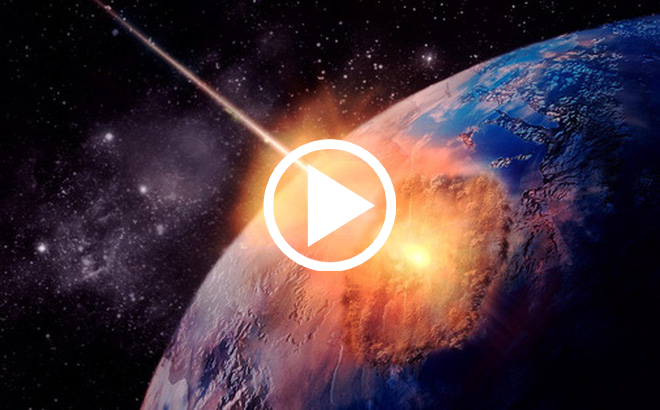12,800 years ago, the remains of a comet caused the most catastrophic cosmic catastrophe since the extinction of the dinosaurs, forcing humans to switch from nomadic to sedentary life.
According to the Daily Mail, the team from the University of Edinburgh examined geological data from North America and Greenland, finding “excess platinum, molten glass and nanodiamonds”, evidence of an impact beyond Earth.
The attackers are fragments of a decaying platinum-rich comet that bombarded many parts of the world such as North America, South America, Europe and Western Asia 12,800 years ago . The collisions triggered the Younger Dryas’ mysterious global climate change event, creating a millennial mini ice age that wiped out at least 35 species of large mammals, including mammoths, behemoths, giant wildebeest … thus than a fairly severe decline in the human population. .
The event also pushes people – who live nomadic lives – into hardship due to the reduced food source. Therefore, they gradually turned to a sedentary lifestyle, looking for smarter ways to exploit food sources, gradually creating primitive agriculture. However, how these ancestors changed their way of life has yet to be studied in more detail.
This impact may also have wiped out some ancient Clovis civilizations in North America and another mysterious civilization in the Abu Hureyra region of present-day Syria, but left many other civilizations with the opportunity to do so.
According to new research published in Earth Science Reviews, the largest chunk of the platinum comet has crashed into Greenland, leaving an impact crater more than 30 km wide. Other small fragments also left 29 platinum mines, spread over many parts of the world.


